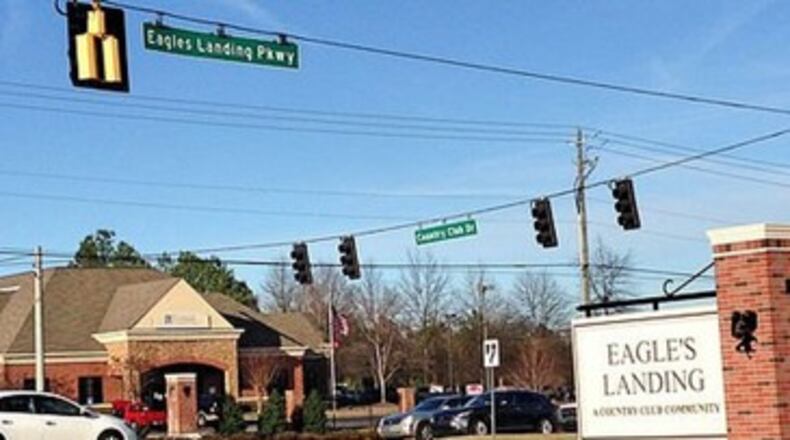Stockbridge officials spent more than $660,000 of taxpayer funds to beat back an attempt by the Eagle’s Landing community to break away and become its own city, financial records show.
The majority of the money — almost $481,000 — was paid to law firms that represented Stockbridge in unsuccessful suits to keep the cityhood referendum off the Nov. 6 ballot.
VIDEO: Previous coverage of this issue
But the city also spent more than $120,000 on lobbyists, who tried to convince the state Legislature to oppose the cityhood effort; more than $20,000 on studies that looked at the impact the separation would have on Stockbridge; and $17,000 on postage for anti-cityhood fliers and postcards sent to homes.
“For a city the size of Stockbridge, (the cost) was not insignificant, but it wasn’t fatal,” said Kennesaw state economist Roger Tutterow. “I’m not sure that the city had a lot of choice because, had the restructuring gone through, it would have had implications for tax revenues not just this one time, but going forward forever.”
In a referendum earlier this month, voters rejected the cityhood measure roughly by a 60 percent to 40 percent margin.
Eagle's Landing cityhood backers have said they wanted to secede to have more local control over city services and to jump-start economic development in the community. But Stockbridge leaders argued that attracting development would be better accomplished as one community instead of two.
The cityhood plan would have de-annexed half of Stockbridge — including 50 percent of businesses — and married it with areas of unincorporated Henry County to form the new municipality.
In its efforts to keep that from happening, Stockbridge paid roughly $304,000 to the law firm of Balch & Bingham, which counts former Georgia Attorney General Michael Bowers among its staff. The firm argued that the referendum was unconstitutional before the state Supreme Court and the U.S. District Court in Atlanta.
Stockbridge Mayor Anthony Ford said he wants to continue to pursue the legal case because it could create a precedent if there are other cityhood movements that would seek to de-annex an already incorporated city to form a different town.
The city spent about $5,000 on bus rentals, parking and lunches as it took residents to the Georgia State Capitol to protest the legislation that would eventually allow Eagle’s Landing to seek cityhood. Other costs included $7,000 for T-shirts, meals, paper copies, newspaper and Facebook advertising and office products.
The story so far
- May: Gov. Nathan Deal signs bills allowing Eagle's Landing cityhood to be put on November ballot; Stockbridge leaders seek injunction to stop vote.
- July: Henry County judge sides with Eagle's Landing cityhood backers, allowing vote to proceed.
- August: Municipal bonding arm of Capital One sues to stop Eagle's Landing cityhood vote in U.S. District Court.
- September: U.S. District Court Judge Leigh Martin May hears arguments in Eagle's Landing lawsuits.
- Nov. 6: Voters overwhelmingly rejected cityhood, by a margin of roughly 60 percent to 40 percent.
About the Author
Keep Reading
The Latest
Featured




